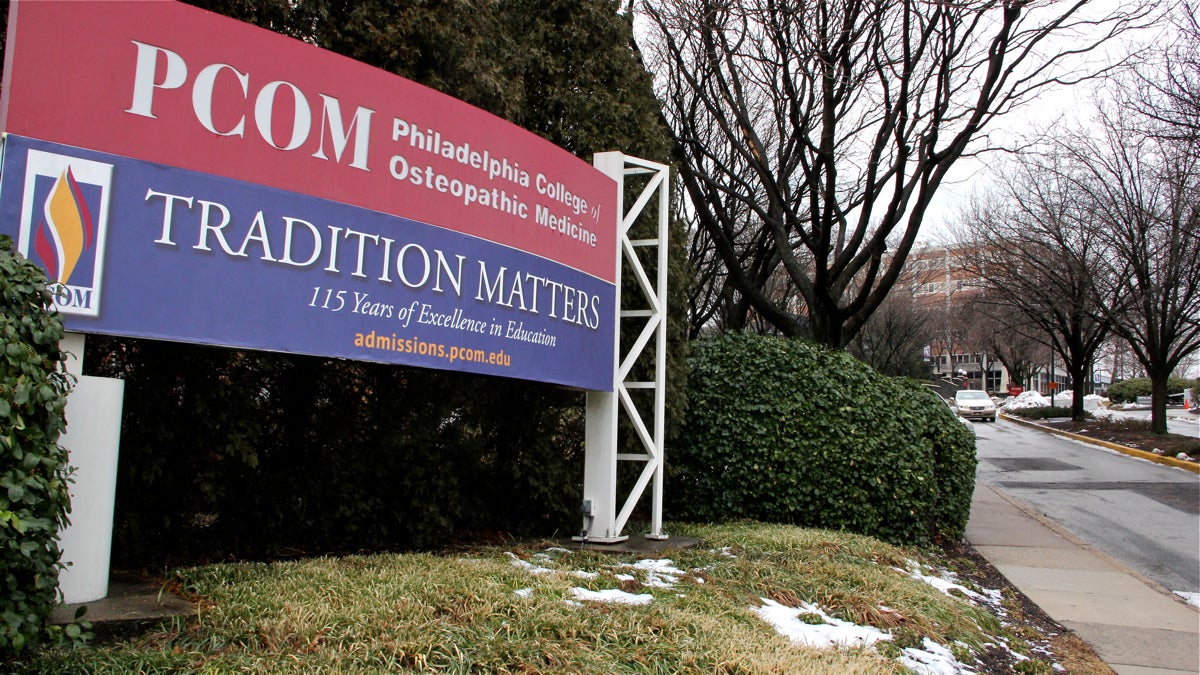Philly College of Osteopathic Medicine bans smoking on City Line campus
Listen
(Emma Lee/WHYY)
Cigarette smokers were already required to puff outside in designated areas, but now Philadelphia College of Osteopathic Medicine’s entire 17-acre campus is tobacco free.
Using snuff and chewing tobacco is forbidden — and the college is banning electronic cigarette use too. Electronic cigarettes are nicotine delivery devices but do not burn tobacco.
Chief human resources officer Ed Potts says the college on City Line Avenue began months ago to have conversations with students and workers about the new policy. Some employees worried they wouldn’t make it through the day without a smoke break, Potts said.
“That was the key issue, I thought that perhaps we would get some talk that this might be discriminatory,” Potts said. “But none of that, none of that at all.”
The college will not give smokers longer breaks so they can go off campus to light up, but free help to stop smoking is available.
The college arranged for wellness classes and adjusted the prescription drug policy, so employees in the health benefits program can get nicotine-replacement therapies without a co-payment.
“Members of the PCOM community who violate the policy may be reported to their department heads or, in the case of students to student affairs,” Potts said by email. After that, disciplinary actions are possible and “could ultimately lead to revocation of any campus rights and privileges.”
The Philadelphia Department of Public Health hosts an online forum where university leaders can exchange ideas as they consider a smoke-free or tobacco-free policy.
Tobacco Policy and Control program manager Ryan Coffman said the list of interested institutions is growing.
“We’ve got a lot of movement from LaSalle University, University of Sciences recently implemented a policy, as well as Jefferson University. We also have Einstein Medical Center, Roxborough Memorial Hospital, CHOP, Chestnut Hill Hospital,” Coffman said.
Some institutions that are already smoke-free or tobacco-free are now considering going back to tweak their policies to also ban electronic cigarette use, he said.
In 2014, Philadelphia banned e-cigarette sales to minors and the city does not allow vaping indoors.
Coffman said independent information on what bystanders inhale when they are near someone who is vaping is limited. Research on the contents of exhaled fumes is scarce, he said.
“Some of the very minimal research that has been done has shown contents ranging from heavy metal, silicates, nano-particles, that was concerning to us in the city,” Coffman said.
“There are some questions, although unproven yet, on second-hand impact of the vapors,” said Potts.
Health-sciences institutions with a mission to promote health are among the organizations that have stepped up first to ban all tobacco use.
When visitors and students see smoking behavior, Coffman said, that normalizes it. By contrast, he said, smoke-free policies “de-normalizes the presence of smoking.”
WHYY is your source for fact-based, in-depth journalism and information. As a nonprofit organization, we rely on financial support from readers like you. Please give today.

